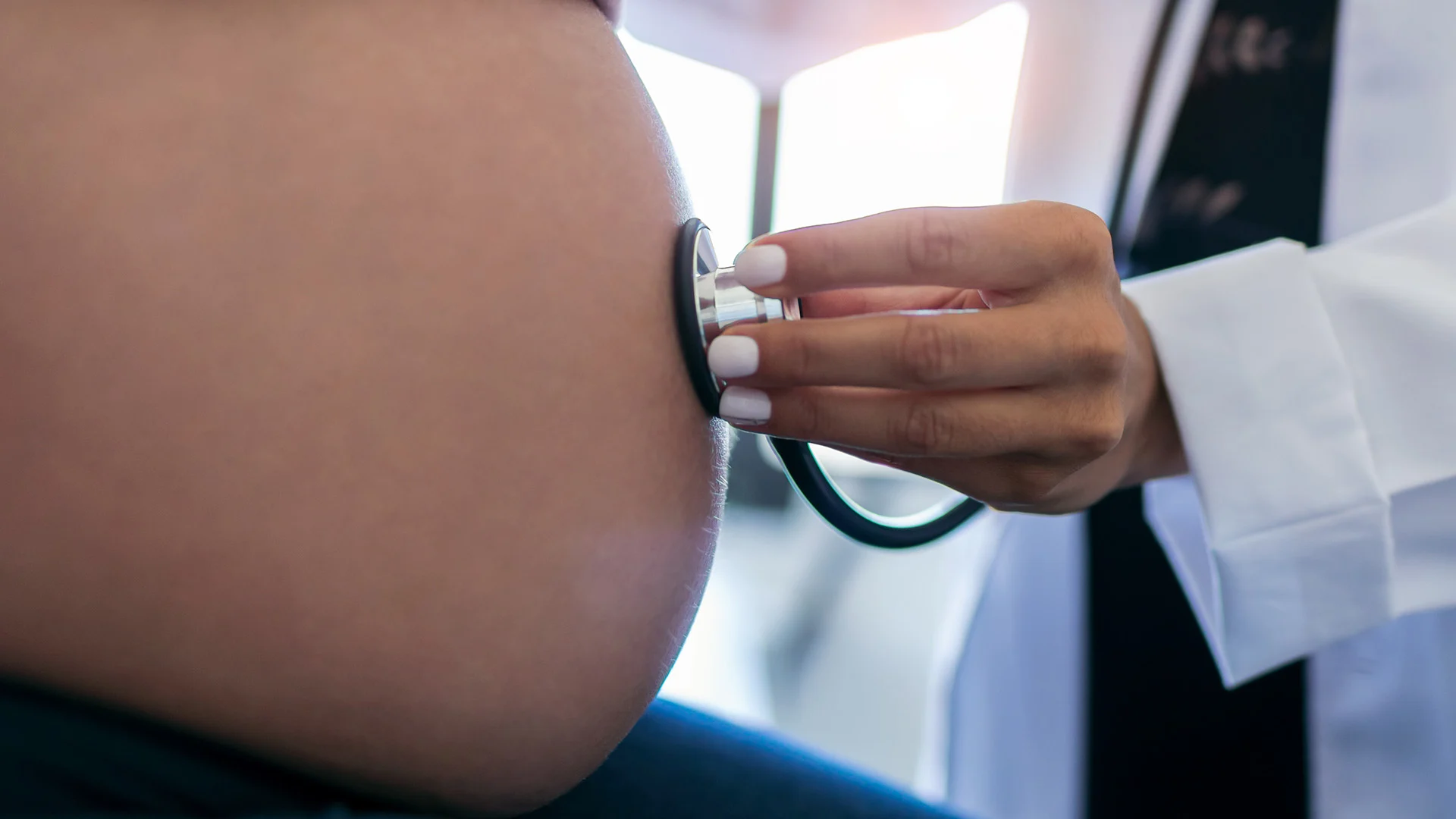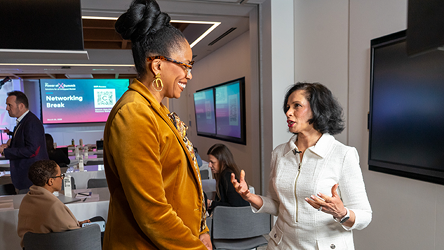February 19, 2024
Article
How a Startup Is Revolutionizing Maternal Healthcare

Overview
Adrianne Nickerson, the co-founder and CEO of Oula, a maternity care clinic, is taking a revolutionary approach to prenatal care, childbirth, and postpartum support.
Oula leverages a multidisciplinary approach to improve maternal healthcare
Maternal mortality is on the rise, particularly among nonwhite women, doubling during the last two decades. A woman in the United States today is twice as likely to die in childbirth as her mother was. Half of maternal deaths occur after a woman has gone home, often due to cardiac causes. How is this possible in America, the richest and most powerful nation on Earth?
Adrianne Nickerson, the co-founder and CEO of Oula, a maternity care clinic that is taking a revolutionary approach to prenatal care, childbirth, and postpartum support, is working to make a difference. Key to the Oula clinic is a multidisciplinary team where midwives play a significant role. Oula currently has two locations in lower Manhattan and Brooklyn.
“The Care Model Is Broken”
That was the answer Nickerson gave when asked why the maternal mortality rate is so high in the US. “In westernized countries that have better rates than we do, midwifery care and team-based care form the foundation of how they built their healthcare systems,” she explained. “But when you look at maternity care in the United States, it looks strikingly similar to the way it was delivered a 100 years ago.”
She was shocked when she planning to become a mother herself. She started asking women about their pregnancy journeys. “They described an experience that, at best, was isolating and impersonal and, at worst, was actually really dangerous,” she recalled. “I thought, I don’t want to go through this experience. I built Oula selfishly for myself, but also to create something that I think could benefit a lot of other women.”
How Oula Works
A woman’s journey with Oula begins online, when she completes a virtual intake form on the Oula website. A virtual consultation comes next, followed by in-person prenatal visits tailored to each patient’s risk profile, preferences and needs. Visits with groups of experts are scheduled at weeks 32 and 37 and into the postpartum period to ensure patients have access to all the care they need.
In addition to midwives, the multidisciplinary team includes ob/gyns, social workers, care coordinators and nurses and nurse practitioners. Each patient’s team is customized to her needs.
“By having this team-based approach and bringing together people who are experts in physical and emotional health, we are able to adjust the care model and the journey for each individual,” Nickerson noted. All Oula team members have access to the patient’s electronic medical record. Babies are delivered at Mount Sinai West Hospital in Manhattan. Oula is open to forging alliances with other healthcare systems as well.
The Oula team is committed to access, and technology is key to achieving it. Patients can book and change appointments online, view lab test results, message members of their acre team at any time of day or night, and view educational information relevant to the pregnancy journey. In addition to the Oula website, the clinic has created an app so patients can access these tools on the go.
Impressive Outcomes for more than 1,500 babies
Since opening in 2021, the Oula team has delivered more than 1,500 babies. The clinic reports its low-intervention approach has resulted in lower C-section and preterm rates and a higher rate of successful VBACs (vaginal birth after cesarean).
The Oula C-section rate is less than 25 percent, compared with 25 percent nationally and 30 percent for New York State.
Their rate of preterm births is less than 4 percent, versus 9 percent for the state and more than 10 percent nationally.
Nearly 90 percent of VBACs at Oula are successful, compared with 70 percent nationally.
Oula deliveries have resulted in no maternal deaths.
Moreover, 94 percent of clients report recommending Oula to others. “To have a net promoter score of 94 is unheard of in healthcare,” said Nickerson. “Women really love their care.”
A Commitment to Equity
Nickerson mentioned that nearly half of all women report having a healthcare provider dismiss, blame or ignore them at some point in their lives — an experience even more commonly reported by black women.
“Systemic racism persists throughout the medical industrial complex that unfortunately women access in order to get their care. You need someone to whom you can say ‘my swelling has increased’ or ‘I’m having shortness of breath.’ But if you don’t think the person on the other side of you is going to listen to you, you’re not going to raise that,” she explained. “For black-identifying women, that is an experience they have over and over, of feeling not heard and not listened to. And that just percolates into poor outcomes.”
The Oula team also asks patients about their access to transportation to get to their clinic visits, what is going on at home, and how they are feeling emotionally. “All of these pieces are so key to driving good outcomes,” Nickerson asserted. In addition to ensuring that all patients at Oula are heard and receive care equally, the team is committed to a diverse workforce.
Nickerson also highlighted the need to invest more in the Medicaid system, which she noted is underfunded. “Until we as a society decide that we value women and children more and put money behind that system, I think we’re going to continue to see a really fragmented, broken system because providers just don’t have the time that they need to spend with patients to deliver better care,” she added.
The Future of Oula
Nickerson and her team hope to expand Oula to every major metropolitan city across the country. ”We’re showing how to make a sustainable business, and that is also what changes the system,” she concluded. “When you can deliver a better experience and achieve better outcomes, then you can change payers’ minds. By expanding and making Oula successful, we can create shifts in the paradigm of how this care gets paid for."





